Engineering Workshops are 30 minute hands-on, instructor-lead, Next Generation Science Standards (NGSS)-aligned classes available for purchase to enhance your Gilbert House Field Trip experience.
Workshops must be scheduled 2 weeks in advance.
Cost: To add a workshop to your field trip, select your desired workshop when completing your Field Trip Request Form. For your small group or homeschool workshop, please use the link below. Each workshop costs $8 per student (or $50 for less than 10 students). Chaperones may accompany their groups to the workshop at no additional cost.
Time and capacity: Due to limited space, workshop sessions can accommodate up to 12 students. Groups with more than 12 students must book multiple sessions (at no additional cost). Ten minutes must be allowed between the end of one workshop sesson and the beginning of the next.
Gravity Cars (Pre-K - 5th)
K-2-ETS1-1, 3-5-ETS1-2, 3-PS2-2
Students will build a prototype car and test how far it travels with the use of a ramp. Applying critical thinking and testing, students will make design changes to improve the distance traveled. Your kiddos will not want to stop when the workshop time is up!
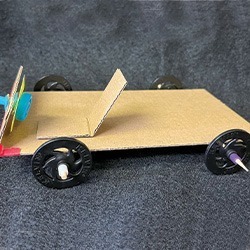
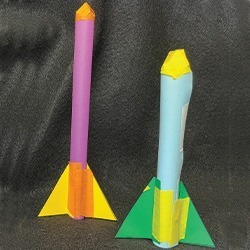
Rockets (Pre-K - 5th)
NGSS: K-PS2-2, K-2-ETS1-3, 4-PS3-4, 3-5-ESTS1-1, 3-5-ETS1-3.
We have built a pneumatic rocket launcher that is waiting for your student’s rockets! Students will learn a basic rocket format and will design custom alterations to make their rockets soar even higher.
Parachutes (Pre-K - 5th)
NGSS: K-2-ETS1-1, K-2-ETS1-3, 3-5-ETS1-1, 3-5-ETS1-3.
Get ready for some wind! Students will construct parachutes to lift plastic animals up and out of a wind tube. Students will explore the concepts of gravity and drag through hands-on experimentation.
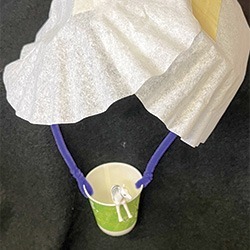
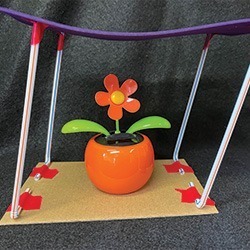
Kindergarten: Solar Shelters
K-PS3-2. Use tools and materials to design and build a structure that will reduce the warming effect of sunlight on an area.*
Experiment with different materials to discover which is best at blocking light, then build a mini solar shelter to protect a toy from the heat of the “sun”.
First Grade: Transparent, Translucent, Opaque
1-PS4-1 Plan and conduct an investigation to determine the effect of placing objects made with different materials in the path of a beam of light.
Use a light meter to measure the effects of placing different materials in the path of a beam of light. Then design a suncatcher using transparent, translucent, and opaque materials. Yes, you may take your suncatcher home!
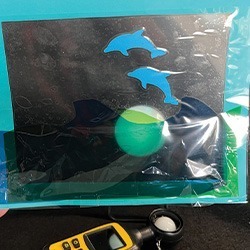
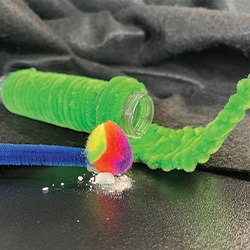
Second Grade: Pollinators
2-PS1-2. Analyze data obtained from testing different materials to determine which materials have the properties that are best suited for an intended purpose.*
2-LS2-2. Develop a simple model that mimics the function of an animal in dispersing seeds or pollinating plants.*
Test different materials to see which can collect and distribute “pollen” best. Then, use your engineering skills to design hand-held pollinators that can collect “pollen” from 3 tricky “flowers”.
Third Grade: Magnet Lock Challenge
3-PS2-4. Define a simple design problem that can be solved by applying scientific ideas about magnets.*
In this engineering-challenge style workshop, design and build a locking system for a model door so that it can only be opened with a magnet. Students may take their doors and magnet “keys” home.
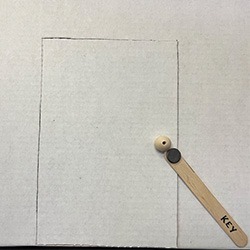
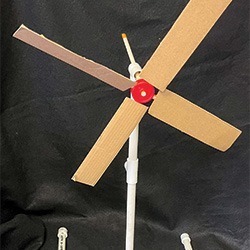
Fourth Grade: Wind Turbines
4-PS3-4 Apply scientific ideas to design, test, and refine a device that converts energy from one form to another.*
Convert wind energy to potential energy by designing and building wind turbine blades sturdy enough to lift a load.

